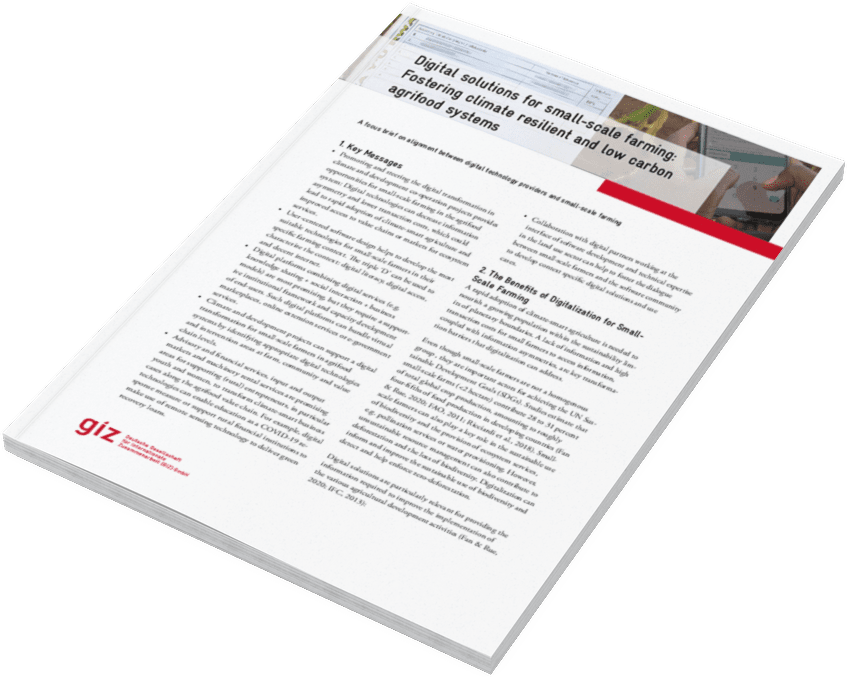A focus brief on alignment between digital technology providers and small-scale farming
Johannes Mössinger and Timm Tennigkeit
Key Messages
- Promoting and steering the digital transformation in climate and development co-operation projects provides opportunities for small-scale farming in the agrifood system: Digital technologies can decrease information asymmetry and lower transaction costs, which could lead to rapid adoption of climate-smart agriculture and improved access to value chains or markets for ecosystem services.
- User-centered software design helps to develop the most suitable technologies for small-scale farmers in their specific farming context. The triple ‘D’ can be used to characterize the context: digital literacy, digital access, and decent internet.
- Digital platforms combining digital services (e.g. knowledge sharing + social interaction + business models) are most promising, but they require a supportive institutional framework and capacity development of end-users. Such digital platforms can bundle virtual marketplaces, online extension services or e-government services.
- Climate and development projects can support a digital transformation for small-scale farmers in agrifood systems by identifying appropriate digital technologies and intervention areas at farm, community and value chain levels.
- Advisory and financial services, input and output markets and machinery rental services are promising areas for supporting (rural) entrepreneurs, in particular youth and women, to transform climate-smart business cases along the agrifood value chain. For example, digital technologies can enable education as a COVID-19 response measure or support rural financial institutions to make use of remote sensing technology to deliver green recovery loans.
Download publication [PDF; 540 KB]
